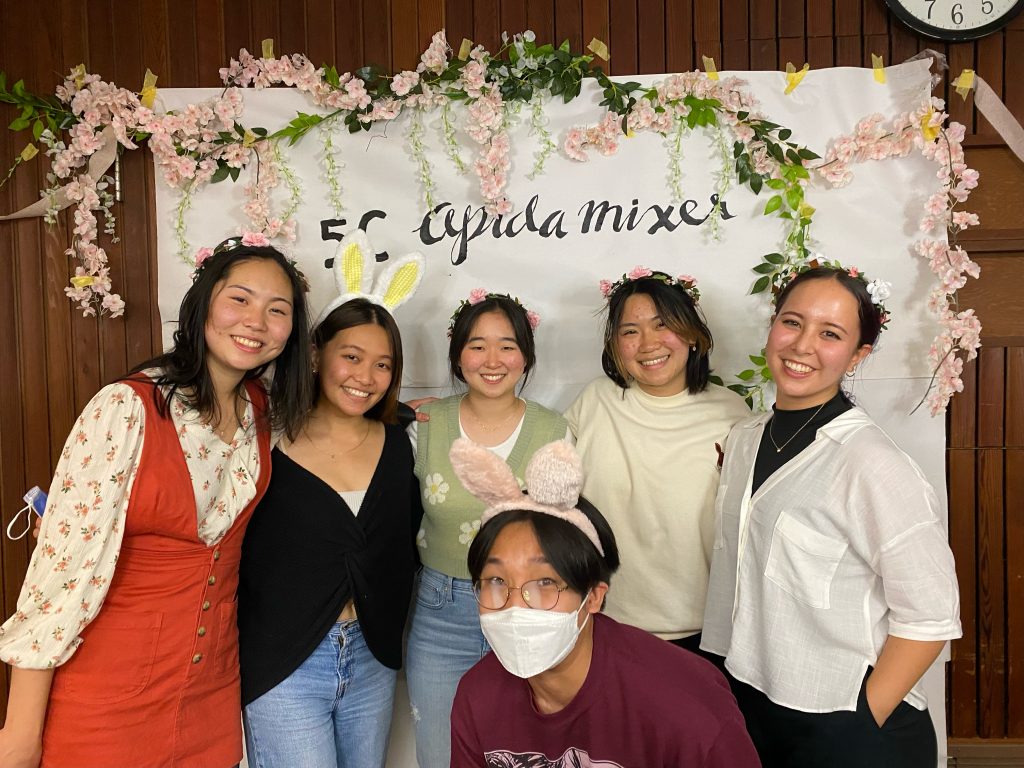Jihae Oh CMC ’24
Staff Writer
On March 4, the Asian American Sponsor Program (AASP) hosted the first 5C Asian Pacific Islander Desi American (APIDA) event. AASP is a student-run mentorship program where first-year and transfer students are placed with mentors, typically sophomores, for the school year. Any incoming student that identifies as APIDA is automatically sent an email about the program, and two sponsors are partnered together to advise a group of about nine sponsees.
“Sponsees are usually freshmen, but this year we had freshmen and sophomores because of COVID,” said sponsor Serena Liu ’24. “It honestly doesn’t feel like sponsor and sponsee, but more just like friends.”
The sponsor program works hard to foster community among Asian American identifying students at Scripps. “I didn’t realize how much I needed Asian community until I came to Scripps and was surrounded by all these white people,” said sponsor Ellie Chang ’24.
Similarly, Liu noted the unifying role of AASP. “I think it’s mostly about having this solidarity on campus,” said Liu. “I know that a lot of my sponsees expressed concerns about the lack of Asians in classes and on campus, so it’s nice to have this community and realize there are other Asian Americans here.”
The AASP sponsors are split into three pods of about four people that take turns planning events throughout the school year. Chang and Liu are both members of the pod that planned the recent 5C APIDA mixer that took place in the Humanities Auditorium at Scripps College.
“It was a mixer between the APIDA community across all the colleges,” said Liu. “I don’t think we’ve had this kind of event until now because of COVID restrictions, and [now] everyone [is] trying to figure out school and life in general.” Of the people that attended, 43.8 percent were from Scripps, 23.2 percent were from Pomona, Harvey Mudd and Pitzer had equal attendance at 12.5 percent, and 8 percent of attendees were from Claremont McKenna.
Often, 5C affinity events tend to be very separated depending on what school students go to. Liu and Chang deliberately worked to prevent this and encourage interactions between the schools through their ice-breaker games.
“One of our games was blackout bingo, which forces people to interact in order to play the game,” said Liu. “We also had the Asian American affinity group at Pomona come up with an activity, and it was a lot of lining people up based on birthdays, ages, etc. But this gets everyone involved. At the end of the night, we sang karaoke which was super fun. People all sang together. At first, it was really awkward, but then people really got into the groove of things and we even went over time.”
COVID-19 restrictions posed issues for AASP in regards to catering food for the event. “We wanted to get our event approved as fast as possible, and as easy as possible, so we decided it would be best to not cater any food,” said Liu. As a result, members were nervous that people would not show up. However, they did offer goody bags with food inside to still provide the food incentive and work around restrictions.
The AASP sponsors this semester were motivated to organize a 5C event due to the lack of cross-campus participation at last semester’s event. “It was a karaoke and movie screening event at Vita Nova Hall with boba,” said Chang. “We had so much of our budget to spend, so we bought a lot of boba, but nobody showed up except Scrippsies. We had to end up giving away boba to non-identifying APIDA students because we had so much left over.”
AASP along with other Asian American affinity groups on the 5C campus- es are trying to strengthen the cross- campus community this semester. “Talking to the other schools, everyone wants to have a stronger APIDA community between the colleges,” said Chang.
Liu echoed this sentiment, and expressed hope about the growing community. “In the process of planning it we made a lot of connections across the 5Cs in their respective Asian American sponsor programs because we had to interact with a lot of them,” she said. “I think that will also facilitate future 5C events because now we have that connection. We even have a group chat with the heads of each group.”
Evidently, creating 5C allyship is very difficult, especially during a pandemic. This event, however, turned this hope into a true possibility. Both Chang and Liu are grateful for this success, and look forward to a stronger 5C APIDA community.
Image Source: Jihae Oh CMC ’24



